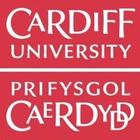- Berita & artikel
- Find usIDP AustraliaIDP BahrainIDP BangladeshIDP CambodiaIDP CanadaIDP ChinaIDP EgyptIDP GhanaIDP Hong KongIDP IndiaIDP IndonesiaIDP IranIDP JordanIDP KenyaIDP KoreaIDP KuwaitIDP LebanonIDP MalaysiaIDP MauritiusIDP Middle EastIDP NepalIDP New ZealandIDP NigeriaIDP OmanIDP PakistanIDP PhilippinesIDP Saudi ArabiaIDP SingaporeIDP Sri LankaIDP Taiwan, ChinaIDP ThailandIDP TurkeyIDP UAEIDP VietnamIDP Corporate
- Social
- Bahasa Indonesia
- Where we operate
- Courses
- Scholarships
- IELTS
- About IDP
- Student Essentials
- Student Essentials
- Transfer uang
- Asuransi kesehatan
- Layanan perbankan
- Akomodasi
- Berita & artikel
- Find us
- Find us
- Find nearest IDP offices
- IDP Australia
- IDP Bahrain
- IDP Bangladesh
- IDP Cambodia
- IDP Canada
- IDP China
- IDP Egypt
- IDP Ghana
- IDP Hong Kong
- IDP India
- IDP Indonesia
- IDP Iran
- IDP Jordan
- IDP Kenya
- IDP Korea
- IDP Kuwait
- IDP Lebanon
- IDP Malaysia
- IDP Mauritius
- IDP Middle East
- IDP Nepal
- IDP New Zealand
- IDP Nigeria
- IDP Oman
- IDP Pakistan
- IDP Philippines
- IDP Saudi Arabia
- IDP Singapore
- IDP Sri Lanka
- IDP Taiwan, China
- IDP Thailand
- IDP Turkey
- IDP UAE
- IDP Vietnam
- IDP Corporate
- Social
- Ubah Bahasa
- IDP Education /
- Kampus dan Universitas /
- United Kingdom /
- Cardiff University /
- MA Applied Linguistics

MA Applied Linguistics
At CARDIFF UNIVERSITY
Lokasi
United Kingdom
Kualifikasi
Masters Degree (Taught)
Biaya
GBP22700
(2025)
Durasi
1 Year(s)
Intake selanjutnya
30 September 2025
Skor masuk
7.0
IELTSCOURSE_INFO
Set in the internationally respected Centre for Language and Communication Research, the MA in Applied Linguistics offers both solid training in research foundations and practice, and the freedom to tailor your programme around your interests and ambitions.
Designed for careers requiring specialised language awareness and teaching English as a foreign language, our wide-ranging optional modules enable you to enhance your skills in the areas of linguistic enquiry most important for you and your career.
Incorporating research methodology and language description, this Master's programme will give you an in-depth understanding of a range of language-related issues, from language acquisition and teaching to social interaction and corpus analysis.
You will acquire well-rounded understanding of the theoretical and methodological approaches employed in the exploration of linguistic structures and language description. While becoming an independent and active learner, you will develop in-depth understanding of key issues in language, communication and linguistics.
Our experts are leading on innovative projects in many different fields, including language acquisition, language teaching, sociolinguistics, historical linguistics, discourse analysis, professional communication, corpus linguistics, systemic functional linguistics and forensic linguistics.
Career prospects - This programme will offer preparation for all careers where language is used for any purpose, for example to influence or persuade, inform, educate or entertain. Gaining an MA will demonstrate higher abilities in research and communication. Some obvious future work destinations include research, teaching, speech and language therapy, publishing, writing, editing, information design, librarianship, as well as professional jobs, such as banking and HR, and public sector jobs, such as those in the civil service or local government. However, the degree is not limited to these possible directions and offers a good preparation for roles in a variety of fields which involve reasoning, critical and evaluative work, verbal and written skills, assimilation of information, communicative skills such as an awareness of linguistic variation, as well as some quantitative skills and skills in presenting information using technology. Some students will also choose to undertake further study in the form of a PhD.
- Beasiswa Lihat semua jurusan
- Magang
Persyaratan masuk untuk Cardiff University
a 2:1 honours degree in a language-related discipline, or an equivalent international degree
a university-recognised equivalent academic qualification
or relevant professional experience evidenced by a reference from your employer to confirm that you currently work in an area relevant to the programme. This should be signed, dated and less than six months old at the time you submit your application.
IELTS with an overall score of 7.0 with at least 6.5 in all other subskills.
TOEFL IBT- At least 100 overall
International Baccalaureate (Language A) - HL 5 or SL 6
Batas Waktu Pendaftaran
Batas waktu pendaftaran tidak tersedia Hubungi konselor IDP untuk informasi lebih lengkap
Further information
If you aren't eligible for the above entry requirements, you might ant to explore pathway options at Cardiff University. If you want to find out more, speak to our counsellors.
Peringkat Dunia THE
201st / 1250
Peringkat Dunia THEApa yang siswa kami pikirkan
Kami belum menerima ulasan apa pun untuk institusi ini.
Direkomendasikan untuk Anda
- Pascasarjana
- United Kingdom
- Tipe pendanaan: Fee waiver/discount
- Pascasarjana
- United Kingdom
- DEADLINE: 03 Feb 2025
- Tipe pendanaan: Fee waiver/discount
- Pascasarjana
- United Kingdom
- Tipe pendanaan: Fee waiver/discount
- Pascasarjana
- United Kingdom
- Tipe pendanaan: Fee waiver/discount
- Pascasarjana
- United Kingdom
- Tipe pendanaan: Fee waiver/discount
- Pascasarjana
- United Kingdom
- Tipe pendanaan: Fee waiver/discount
- Pascasarjana
- United Kingdom
- DEADLINE: 06 Jun 2025
- Tipe pendanaan: Fee waiver/discount
- Pascasarjana
- United Kingdom
- DEADLINE: 05 May 2025
- Tipe pendanaan: Fee waiver/discount
Your action plan
Langkah 1
Shortlist your courses
Choose the best three courses you’re most likely to pursue.
Langkah 2
Check your eligibility
Get an instant in-principle offer for courses with the IDP FastLane tag.
Langkah 3
Apply through IDP Live
Fill out the form once and use it to apply to multiple courses.
Bagaimana cara kerja IDP FastLane?
Dengan 'Offer in Principle' dari FastLane, Anda akan mengetahui apakah Anda dapat diterima dalam hitungan menit!
Pilih institusi dan mata kuliah
Buat profil akademik Anda
Kirimkan permohonan Anda untuk 'Offer in Principle'
Institusi pilihan Anda akan mengirimkan keputusan dalam hitungan menit!
Bersiaplah untuk mendaftar dengan konselor ahli




